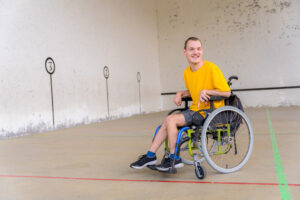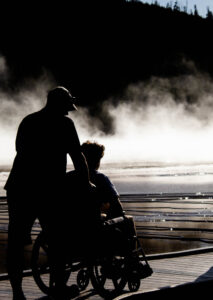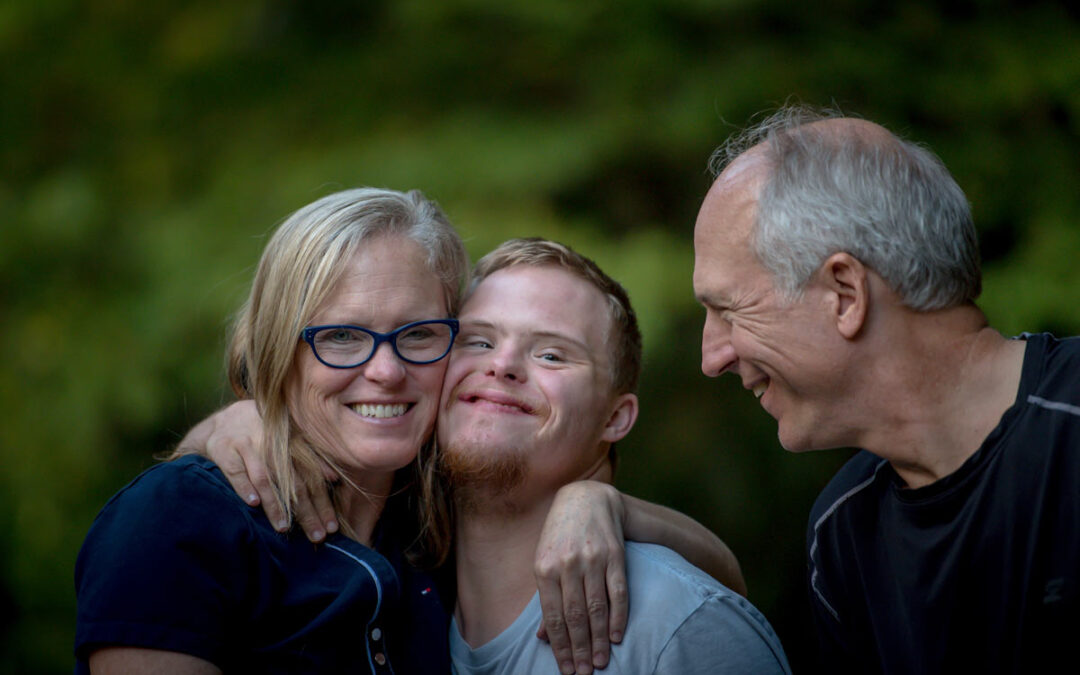Learning how to care for disabled adults can be tough, but it can also be really rewarding. As the needs of your disabled loved one change over time, it can become increasingly difficult for family caregivers to provide the level of care that’s needed. That’s where professional in-home care comes in. It’s crucial to recognize the signs that indicate the need for it so that you can ensure the safety and well-being of your loved one and reduce your stress.
Signs You Need In-Home Care For A Disabled Adult
1. Difficulty with Activities of Daily Living
One sign to pay attention to when evaluating care for a disabled adult is difficulty with Activities of Daily Living (ADLs). We often take for granted basic tasks like bathing, dressing, grooming, and eating, but if your disabled loved one is having difficulties with these, they may need extra help. Family caregivers may find it increasingly difficult to provide this level of care, especially if their loved one has mobility or cognitive issues. Professional in-home caregivers are ready to provide the support and assistance necessary to ensure that your loved one’s needs are met and that they can maintain their quality of life.
 2. Increased Safety Concerns
2. Increased Safety Concerns
Safety concerns are a significant issue and another sign to consider when evaluating care for a disabled adult, especially if they have mobility or cognitive issues. Common issues like falls or burns can be life-threatening and family caregivers may find it difficult to give the 24/7 supervision and care that they need. Professional in-home caregivers can assist with mobility, fall prevention measures, and other safety interventions. Additionally, professional caregivers are trained to recognize and respond to emergencies, which can help prevent serious accidents and injuries.
3. Cognitive Decline
Cognitive decline is another important sign to gauge when determining care for a disabled adult. Many disabled adults face this, especially as they age. Memory loss, confusion, disorientation, and other issues can impact their ability to function independently. And that can be challenging for family caregivers who may find it hard to provide the specialized care or supervision that they loved one needs. Again, professional in-home care is the answer. It can provide the necessary support and assistance to help your loved one manage their cognitive decline whilst still maintaining their independence.
4. Increased Medical Needs
As your disabled loved one age, they may require increased medical attention and care. Caregiving can be challenging for family caregivers, especially if they lack the medical training or equipment, and resources necessary to manage chronic conditions. To ensure your loved one’s medical needs are met, professional in-home caregivers can provide the necessary medical assistance and support. And that includes skilled nursing care, medication management, wound care, and other medical services as needed. Plus, having a professional caregiver with medical training can give you peace of mind, knowing that your loved one is receiving the best possible care.
 5. Caregiver Burnout
5. Caregiver Burnout
What about you, the family caregiver? You may be experiencing burnout, fatigue, and stress over time, which can be emotionally and physically exhausting. The structure of your family and yourself should also be taken into account when thinking about care for an adult with disabilities. Professional in-home care can provide respite for you, giving you a much-needed break from the demands of caregiving. This can help prevent caregiver burnout, reduce stress, and improve your overall well-being as well as your loved ones. Recognizing caregiver stress and seeking help when needed is essential for ensuring you and your loved one receive the support and care you need to thrive.
Closing Note:
In conclusion, caring for a disabled adult at home can be tough, but it can also be rewarding. Recognizing the signs that indicate the need for professional in-home care, such as difficulty with ADLs, cognitive decline, increased medical needs, safety concerns, and caregiver stress, is crucial for ensuring the safety and well-being of your loved one and reducing your stress. If you’re considering in-home care for someone you love, reach out to the friendly team at Sunny Days In-Home Care.


